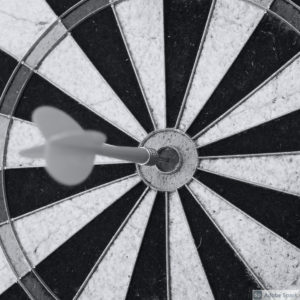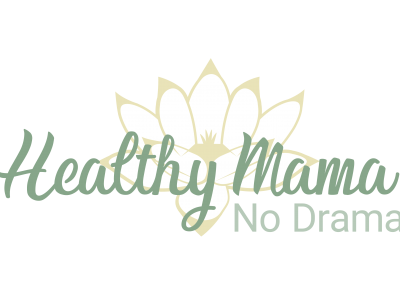"All disease begins in the gut."
-Hippocrates, the father of medicine
A healthy gut is foundational to a healthy you. The human gut does more than just digest food and absorb nutrients. There’s a reason it’s called the second brain. Your gut health can have a significant impact on your overall health. Just like the stone tower in the above picture requires proper balance, if the gut is out of balance, the body is not going to be able to operate as it should.
What is the “gut” and why is it important?
The gut (gastrointestinal tract) has its own microbiome which houses trillions of bacteria. The microbes in the gut make vitamins, minerals, and other nutrients. These microbes are vitally important for healthy immune function, and they even affect brain health. Sounds crazy, I know, but it’s true. And, according to Jay Pasricha, M.D., the director of the Johns Hopkins Center for Neurogastroenterology, researchers are finding evidence that poor gut health triggers mood changes through signals it sends to the central nervous system.
“These new findings may explain why a higher-than-normal percentage of people with IBS and functional bowel problems develop depression and anxiety,” Pasricha says. “That’s important, because up to 30 to 40 percent of the population has functional bowel problems at some point.”
This is huge! The number of people I personally know who suffer from both gut health and mental health supports the notion that this is not just a coincidence. A healthy gut really does play a crucial role in your overall health…and not just the physical health.
The Gut-Brain Connection
While the brain is arguably the most important organ in the body, you could say the digestive system is perhaps the second most important. The connection between the brain and the gut (the gut-brain axis) controls your overall health. Just like two puzzle pieces, both the gut and the brain are needed for your body to function properly.

The gut sends nutrients to the brain through the blood. These nutrients help your brain function properly. But, it’s a two-way street. The brain also has a good deal of influence over gut health. In order for your body to have good digestion, the body needs to be relaxed. Maybe you know someone who eats a super healthy diet, takes lots of supplements, and yet, still has digestive problems? This is possibly why! Another example would be those that suffer from acid reflux. Stress is a huge trigger for acid reflux. If you know, you know.
Signs of poor gut health
Poor gut health can impact your overall health in a wide variety of ways. Many of the commonly known symptoms relate to the digestive system. But, there are also a lot of lesser known syptoms of poor gut health that are seemingly unrelated to the digestive system.
Digestive Symptoms
It’s important to note that not all digestive issues can be directly related to gut health. Some other common causes are genetics, chronic conditions, poor diet, ongoing stress, etc. But, it’s not uncommon for digestive issues to be related to an imbalance of bacteria in the gut, which is called gut dysbiosis.
- Gas
- Bloating
- Heartburn
- Diarrhea
- Constipation
- Leaky gut
Non-Digestive Symptoms
Poor gut health can cause a number of health problems, some of which don’t seem to even be related to digestion.
- Autoimmune disorders (such as Hashimoto’s)
- Inflammatory disorders (such as rheumatoid arthritis)
- Joint pain
- Bone-on-bone arthritis
- Seasonal allergies
- High levels of anxiety
- Hormone issues (estrogen-dominance)
- Difficulty losing weight
- Insulin resistance
Causes of poor gut health?
There is an increasing number of people with gut issues today. Some of the primary reasons are due to our modern lifestyle, particularly poor nutrition. And it’s really no wonder. Our diet is being taken over by processed food, food treated with chemicals, and genetically modified food. On top of that, our food often lacks the digestive enzymes needed for our bodies to break down the food, absorb the nutrients, and then metabolize it. The unfortunate victim of the modern diet is our body and gut. Our bodies were not designed to handle and process the things we are subjecting it to through our diet and lifestyle. The three factors below are by no means a comprehensive list. But, they are three of the biggest culprits of poor gut health.
Diet
- Diets full of processed food that is void of important vitamins, minerals, and phytonutrients
- Under-consumption of healthy fats like omega-3s, which are anti-inflammatory
- Over-consumption of omega-6 fats, which are inflammatory
- Consumption of other inflammatory foods like gluten and dairy that can trigger leaky gut
- Increased exposure to herbicides (like glyphosate) that leads to bacterial imbalance
- Eating meat and dairy loaded with antibiotics that kill healthy bacteria in the gut
- Exposure to chemical and environmental toxins that impact gut health
Chronic stress
Plays a much bigger role than many realize. Stress doesn’t just affect your mental health. Remember how we said above that in order for our body to properly digest our food, it needs to be relaxed. Well, as you know…being stressed is kinda the opposite of being relaxed!
Lack of sleep
The majority of people nowadays don’t get enough sleep and it can lead to multiple health problems, especially when coupled with stress.
How can I improve my gut health?
I’m going to share some simple options below that might be helpful if you’re experiencing gut issues. For more ideas, and simple changes to implement, even if you just want to maintain a healthy gut, check out my free guide: 12 Keys to Gut Health.
Elimination diet
The idea with an elimination diet is to naturally reduce inflammation by eliminating foods that are common triggers of inflammation so the gut can begin to naturally heal and repair. Common foods that can trigger allergic or inflammatory response in the gut are: dairy, grains, gluten, soy, eggs, processed deli meat, processed condiments, caffeine, and alcohol. Trying an elimination diet could be very helpful, and a less expensive option than doing extensive testing. Read more about an elimination diet here.
Shakes
Getting the nutrients your body needs in a liquid form makes it easier for your gut to heal. Making a shake with a high quality protein powder is a great option. The protein is already broken down, which makes it easier to digest and absorb the nutrients. In addition to a plant-based protein powder, other gut healthy ingredients for your shake would be leafy greens, fiber, and olive oil or MCT oil (to lubricate the gut).
Intermittent Fasting
There is a lot of controversy and differing opinions surrounding intermittent fasting. I always promise to try and share research-based, unbiased information. So here’s my attempt at that.
Intermittent fasting basically involves shortening the window in which you eat, giving your stomach a longer period of time to rest. This also gives your liver more time to detoxify and your circadian rhythm more time to reset. The additional resting time can change the bacterial composition of your

gut; bad bacteria can’t survive very easily when there is limited food supply to feed off. Intermittent fasting typically looks like eating all of your food within an 8 hour window. For example, 10am to 6pm.
There is also research that shows intermittent fasting (or rather, not eating within an hour of waking) can disrupt your hormone regulation. So, like most things, you have to determine what is best for you. Personally, I do not follow intermittent fasting. But, I do try to limit my snacking and avoid eating after dinner to give my body as much of a break as possible.
Supplements
This one will vary more from person-to-person, but the goal of supplements is to give your body a tool to help it begin the healing process. The human body is meticulously designed to work hard and heal itself. Therefore, by fixing the big issues, your give your body more support to fix the rest of the issues on its own. Some helpful supplements to consider starting with are below, but please check with your doctor before adding anything. And, I’d be remiss if I didn’t mention that supplements are just that…a supplement. They’re best paired with a healthy diet and active lifestyle.
- Protein powders – plant-based are best because they contain amino acids necessary for the repair of gut lining
- Natural anti-inflammatory supplements like omega-3 fatty acids can help control inflammation, especially in the absence of eating wild caught fish
- Vitamin D – supports immune health
- Probiotics & prebiotics to help a strong balance of good bacteria in your gut
- Zinc to assist in the gut repair process, especially since many people have low levels of zinc
My Gut Game Changer
When I began wanting to address my gut health, I started by taking a whole food digestive enzyme supplement to replace the enzymes that are lacking in much of our food today. I paired it with a very high quality, plant-based vitamin supplement “system” (I say system because it contains three components which just so happen to have the aforementioned omega-3s, Vitamin D and Zinc), and a double-encapsulated probiotic. The double encapsulation is key to ensure the probiotic survives through the stomach and actually makes it to your intestines. Check out What to Look for in a Probiotic to learn more.

What I can tell you is I have been absolutely astounded by the results. We’re talking hit the nail on the head. Bullseye. I feel more rested when I wake up in the morning, have more energy throughout the day, have seen a significant improvement with gas and feeling bloated, better and more consistent bowel function (sorry if that’s TMI), and more!
Serious. game. changer.
For more tips and ideas on simple changes you can make to improve your gut health, AND for a way to get any of the above supplements at a discount, make sure to request a free copy of my guide: 12 Keys to Gut Health.
Always consult with your doctor before you start any diet or supplement program for gut health, as supplements (including the serving size) may be different in each case. The information shared in this post is for educational and informational purposes only, and does not constitute medical advice.
Resources:
- https://webfmd.com/surprising-connection-between-gut-health-your-overall-health/
- https://webfmd.com/functional-medicine-approaches-to-gut-health-issues/
- https://www.hopkinsmedicine.org/health/wellness-and-prevention/the-brain-gut-connection
Related posts:
- Preventative Health & Wellness It's great to have so many options at our fingertips today to address various health and wellness concerns. But, I think we can agree that being preventative with our health...
- Anti-Inflammatory Diet One of the best ways to fight inflammation in your body does not come from a drug store. Instead, it comes from the grocery store. By simply choosing to incorporate...
- 11 Better-than-Melatonin Tips for Quality Sleep A good night’s sleep is actually just as important as regular exercise and a healthy diet? And, while many turn to melatonin to support a good night's sleep, there are...
- My daily routine for healthy skin Youthful, healthy skin is something I think we all desire, but many don’t know how to achieve it. As we get older, our skin begins to show signs of aging...


